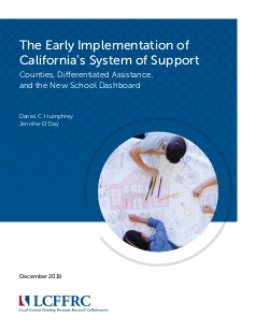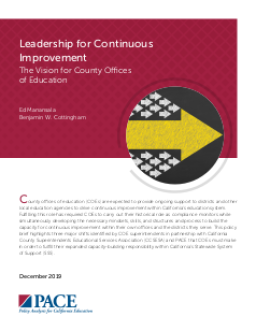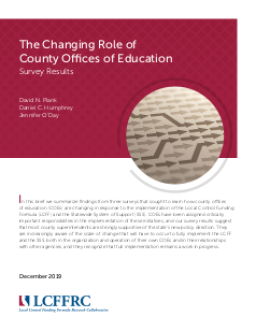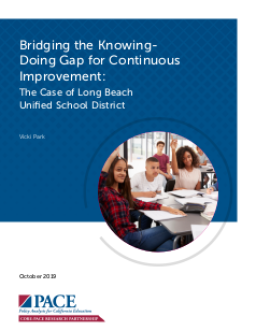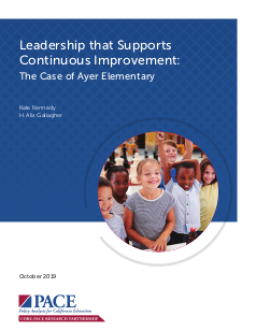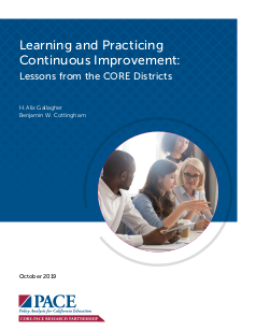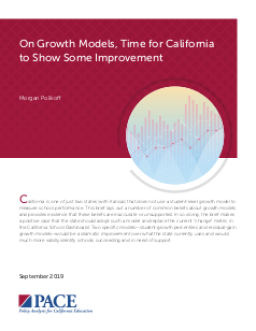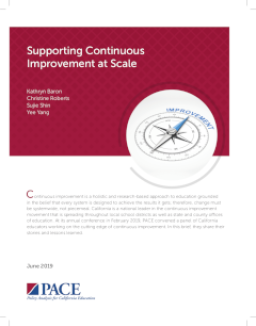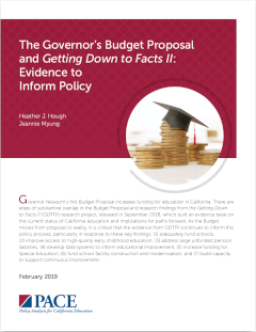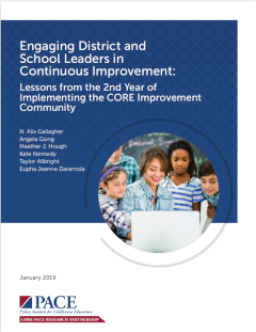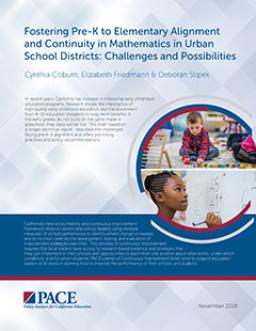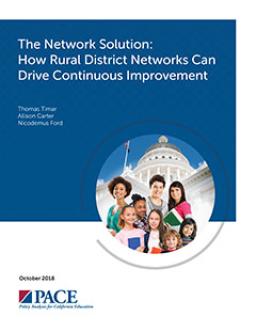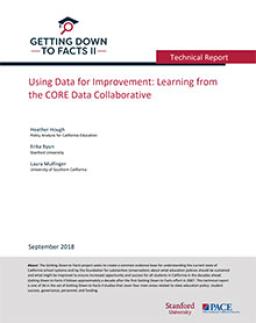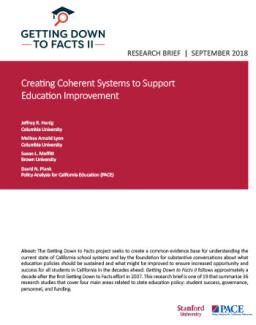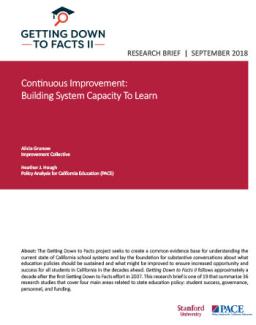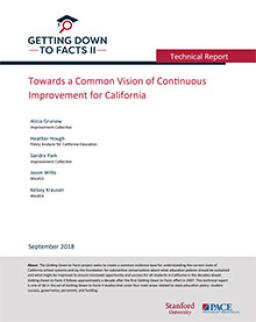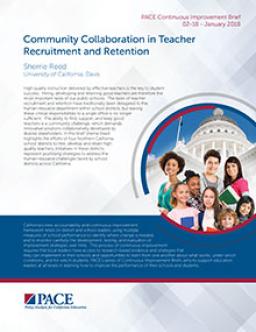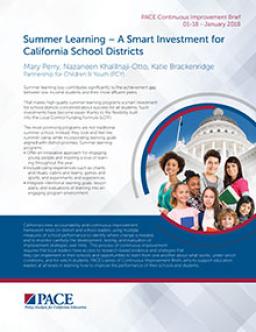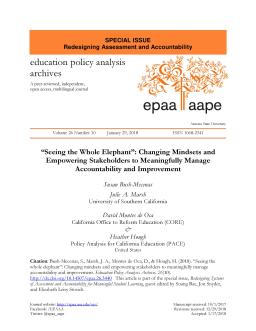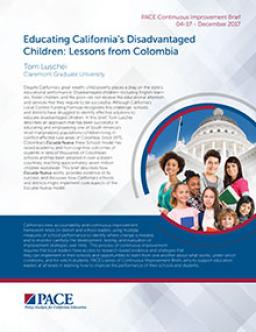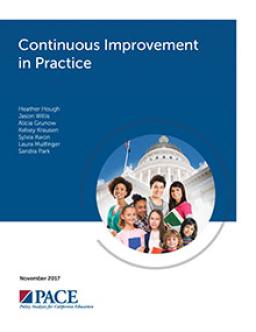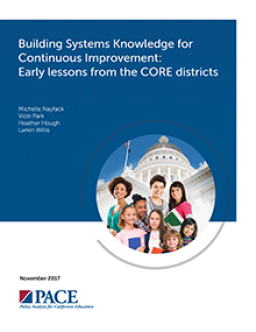Summary
This report examines the early implementation of California's Statewide System of Support, which is designed to empower local educators in determining the best approaches to improvement. While COEs and district officials hold positive views of the system's emphasis on support over compliance, they have concerns about under-resourcing and the effectiveness of the Dashboard measurement tool. The report provides five recommendations to make the System of Support a more comprehensive system aligned with the Local Control Funding Formula.
Summary
Summary
Summary
Summary
Summary
Summary
This report examines how California's education sector is embracing continuous improvement over standards-based reform. The study presents six lessons learned from PACE and CORE Districts' collaboration on the topic, including the complexity of embedding continuous improvement processes into school norms and the need for deliberate steps to build a culture conducive to continuous improvement. The report provides implications for broader continuous work in California and beyond, with three case studies providing more detail on exemplary practices in two districts and one school.
Summary
Summary
Summary
This report updates previous research on California's Local Control Funding Formula (LCFF) using a 2019 poll of California voters. Despite increased awareness, over half of voters are unfamiliar with LCFF. Support for the policy remains high but has decreased. Participation in LCFF engagement has increased but remains low, particularly among low-income voters. Low-income communities may not be meaningfully engaged in LCFF decision-making.
Summary
Governor Newsom’s first Budget Proposal increases funding for education in California. There are areas of substantive overlap in the Budget Proposal and research findings from the Getting Down to Facts II (GDTFII) research project, released in September 2018, which built an evidence base on the current status of California education and implications for paths forward. As the Budget moves from proposal to reality, it is critical that the evidence from GDTFII continues to inform the policy process.
Summary
Summary
Summary
Summary
Effective data use is crucial for continuous improvement, but there is confusion about how it differs from data use for other purposes. This report explains what data are most useful for continuous improvement and presents a case study of how the CORE data collaborative uses a multiple-measures approach to support decision-making.
Summary
California's implementation of Common Core State Standards and Local Control Funding Formula requires new support systems for districts, including professional networks and the California Department of Education. Successful implementation requires multiagency cooperation and strategic management of relations with Washington.
Summary
Continuous improvement in education involves engaging stakeholders in problem-solving to discover, implement, and spread evidence-based changes that work locally to improve student success. California sees it as central to enduring education transformation. It requires an initial significant investment in time and money to make it a reality, but can improve education quality. However, California's data systems are inadequate for helping districts monitor progress, and more training and coaching are needed to build expertise for statewide implementation.
Summary
CA is shifting the responsibility for school improvement to local school districts with County Offices of Education playing a supportive role. The focus is on local leaders driving educational improvement and ensuring quality. Strategic data use is central to the implementation of this policy, with questions remaining about what data is needed, by whom, and for what purpose. This paper provides a framework for how data use for improvement is different from data use for accountability and shares lessons from the CORE Data Collaborative on how to use data for improvement in networked structures.
Summary
California needs a longitudinal data system to improve student outcomes. Meanwhile, regional partnerships between education institutions and community organizations are using data to improve outcomes. A guide was created to help leaders with data sharing and use, and presents the components of effective regional efforts around data sharing and use, with tools to dive deeper into specific factors within each component. The guide aims to serve as a framework, tool for reflection, and networking resource for intersegmental leaders.
Summary
Teacher recruitment and retention are critical responsibilities of school districts. The challenge of finding, supporting and retaining good teachers requires innovative solutions collaboratively developed by diverse stakeholders. This brief highlights the efforts of four Northern California school districts to address human resource challenges and hire, develop and retain high quality teachers, which represent promising strategies for other districts across California.
